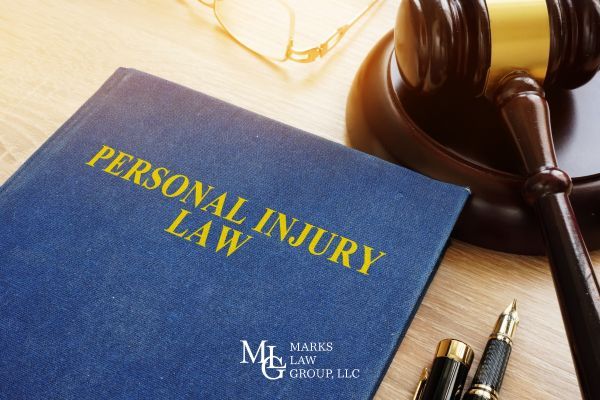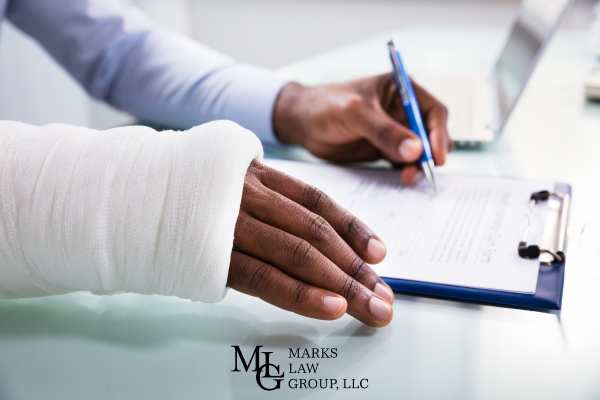After an accident, you may suddenly find yourself dealing with unexpected medical appointments, phone calls from the insurance company, pain from your injuries, and a growing stack of medical bills. At the same time, you might be unsure about what steps to take next or how to protect yourself legally. It’s in this moment that many people ask a simple but important question: Should you hire a personal injury attorney?
The answer depends on the severity of your injuries, how complicated the situation is, and whether the insurer is treating your claim fairly. Some small matters can truly be handled without a lawyer. But when an accident leads to real harm, disputes about fault, or pushback from the insurance provider, having a personal injury lawyer can significantly affect the outcome of your personal injury lawsuit. Understanding what an attorney does and when hiring one is genuinely necessary can help you make the right choice for your future.

What a Personal Injury Lawyer Actually Does
Understanding what a personal injury lawyer really does can help you decide whether hiring one is necessary for your situation. Their role is much broader than appearing in court, and most of the work happens long before a case ever reaches a judge.
Managing the Legal and Insurance Burden
A personal injury lawyer reduces post-accident stress by handling insurer communication, explaining your rights, and organizing claim information. Early involvement protects you from actions that may harm your case.
Gathering Evidence and Documenting Your Losses
After hiring an attorney, they collect and review evidence like police and accident reports, medical records, and photos. They document losses, including property damage, missed work, and ongoing pain. For serious injuries, they collaborate with experts and specialists to support long-term needs and limitations.
Coordinating Investigations and Reconstructing What Happened
A lawyer coordinates detailed investigations when facts are unclear or disputed by insurers. This includes reviewing surveillance, crash photos, or hiring accident reconstruction experts. They clarify incidents, especially in complex cases like vehicle accidents, product liability, construction injuries, premises claims, or medical negligence.
Learn More: The Importance of Gathering Evidence After a Car Accident
Handling Communication, Negotiation, and Litigation Preparation
Your attorney handles all communication and negotiation with the insurance provider, prepares your case for discovery or court, and manages deadlines and legal requirements to protect you from being exploited.
When You Might Be Able to Handle a Claim on Your Own
There are genuinely times when you might not need legal representation. If you were involved in a very minor car accident with no injuries, minimal property damage, and a cooperative insurer, you might be able to settle the matter yourself. In situations where you never needed emergency care, didn’t require physical therapy, and have no signs of ongoing personal injuries, the process may remain simple enough to manage independently.
Even simple cases can get complex. Insurers might offer low settlements or underestimate injuries. Many opt for an initial consultation, especially if it's free, to understand their rights and prevent insurers from minimizing claims.

When Hiring a Lawyer Becomes Extremely Important
In many accidents, especially those involving significant injuries, complicated facts, or aggressive insurance tactics, hiring an attorney isn’t just helpful. It’s protective. There are certain situations where having a personal injury lawyer becomes essential because the risks of handling the claim alone are simply too high.
Severe Injuries
Severe injuries, such as brain or spinal damage, lead to high medical costs and long-term care, affecting health, income, and life quality. Lawyers work with experts to secure a comprehensive recovery. Hiring one is crucial if the fault is unclear, disputed, or involves multiple parties. Negligent entities often deny responsibility in cases like slip-and-fall or product liability. In complex cases like wrongful death, lawyers gather evidence and expert analysis to strengthen your claim.
Dealing with Insurance
Insurance company behavior is another major reason many people decide they can’t navigate a claim alone. Insurers are trained to reduce payouts wherever possible, and they may use tactics like questioning your injuries, dismissing the necessity of your medical attention, challenging your accident reports, or delaying communication to pressure you financially. These tactics are designed to make you accept less than you deserve.
Insurers often make handling claims difficult. They may downplay injuries, question medical care, challenge reports, or delay responses, pressuring you financially to settle for less.
You should especially consider hiring a lawyer if:
- Your injuries are serious, long-term, or require extensive medical care
- Fault is unclear, or the other side is blaming you
- There are multiple parties involved
- You’re dealing with a wrongful death case
- The insurance company is delaying, denying, or minimizing your claim
- You’re unsure about the value of your damages or future medical needs
In all of these situations, an attorney helps protect your rights, manage communication, and ensure the insurance company doesn’t take advantage of your vulnerability or unfamiliarity with the legal system.
Learn More: Compensation for Mental and Emotional Trauma
How Personal Injury Cases Are Built
A strong personal injury case is built through careful evidence gathering and clear documentation. Attorneys typically begin by reviewing your medical timeline, comparing your emergency room records to follow-up care and long-term treatment. They consider reports from medical professionals, analyze documented injuries, and determine whether you might need ongoing therapy or consultations with specialists.
Next, they establish how the accident occurred. This may involve reviewing surveillance footage, analyzing crash site photographs, measuring distances, or interviewing witnesses who saw the event unfold. In car crashes and other motor vehicle accidents, lawyers often work closely with investigation teams, reconstruction experts, and other technical specialists to explain how impact force or road conditions played a role.
Finally, attorneys connect the dots between the accident and your damages. They show how the event caused your physical injuries, emotional suffering, financial losses, and changes to your day-to-day life. This is essential in proving your personal injury claims to the insurer or, if needed, in civil courts.

Understanding Contingency Fees
A major concern for accident victims is the cost of hiring a lawyer. Fortunately, most personal injury firms, including those that handle accident cases, dog bites, product liability, and car crashes, use a contingency fee model. Under this system, you don’t pay anything up front. Instead, the attorney receives a percentage of the final recovery. If the lawyer doesn’t win or settle your case, you usually owe nothing for attorney time.
The details are outlined in a contingency fee agreement, which explains how the percentage works, how case expenses are handled, and what happens if the matter goes to litigation. You may see terms like contingent fee or contingent fees, but they all refer to the same payment arrangement designed to let accident victims access legal help during a difficult time without taking on financial risk.
What to Expect at a Consultation
An initial consultation is your chance to understand whether hiring a lawyer makes sense for your situation. During your meeting, the legal team reviews your injuries, the details of the accident, your medical treatment, and any documents you have, such as police reports or accident reports. They look at your financial losses, your recovery timeline, and the strength of your case. From there, you receive personalized legal advice about your next steps.
Should You Hire a Personal Injury Attorney?
If your accident involved nothing more than a minor bump and no injuries, you may not need an attorney experienced in personal injury law. But if you’re dealing with painful injuries, confusing insurance decisions, growing medical bills, or uncertainty about how the accident happened, hiring a personal injury lawyer can protect your health, your time, and your financial future. An attorney handles the legal burdens while you focus on healing and ensures the insurer doesn’t take advantage of your vulnerability.
If you or a loved one was injured and you're unsure what to do next, Marks Law Group can help you understand your options, review your case, and guide you toward the best path forward within the statute of limitations. Call today at (678) 251-9309 for a free consultation and get started on the path to healing.
Frequently Asked Questions
Is a personal injury lawyer worth it?
Yes, a lawyer is valuable for significant injuries, disputed liability, or reluctant insurers. They gather evidence, negotiate, estimate medical costs, and protect your rights. Even in minor cases, a free consultation clarifies if you need a lawyer for a better outcome.¡
What is the hardest injury to prove?
Injuries that don’t show up on X-rays or scans, such as soft-tissue injuries, chronic pain conditions, and some forms of traumatic brain injury, are often the hardest to prove. These conditions rely heavily on medical evaluations, expert testimony, and documentation of long-term symptoms. A lawyer works with medical professionals, specialists, and sometimes expert witness testimony to connect these invisible injuries to the accident and demonstrate how they affect your daily life.
What percentage do most personal injury lawyers take?
Most personal injury lawyers work on a contingency fee, meaning they are paid a percentage of your final settlement or verdict. The most common percentage is between 33% and 40%, depending on the complexity of the case and whether it proceeds into litigation. The exact amount will be outlined in your contingency fee agreement, along with any case expenses that may apply.
